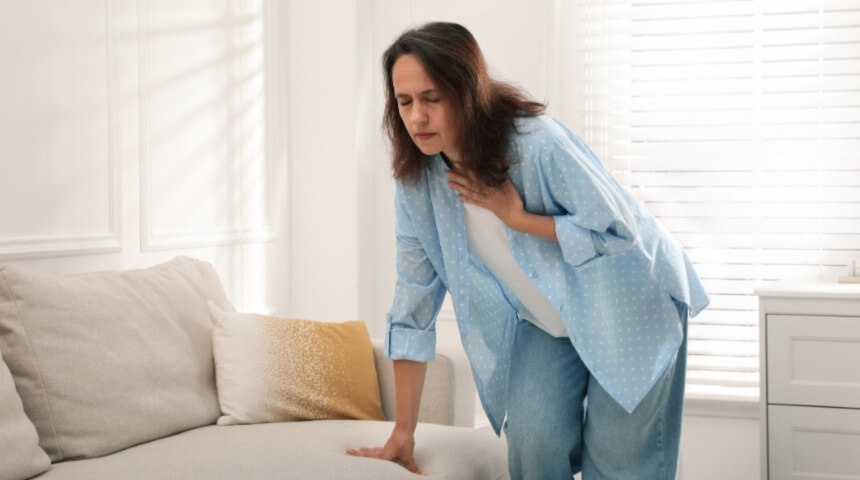Most insect bites and stings trigger a minor reaction, and are just really annoying. But, sometimes they can cause more serious problems that need immediate medical care. With the possible increase of biting bugs that comes with the deluge of standing water from Hurricane Dorian, it’s important to take steps to protect yourself.
Protect and Defend
The first step to protection is avoiding contact with insects as much as possible. This means:
- Remain indoors in the evenings when mosquitoes are most prevalent.
- Empty standing water from kiddie pools, buckets or old tires where insects gather to breed.
- Recognize and steer clear of hives (bee, wasp, ant, etc.), and avoid touching bugs you see outside.
- Inspect wood and logs before moving them to avoid disturbing insects that make their home there.
- Stay in the center of hiking trails, avoiding woody areas with high grass to avoid ticks.
- Maintain tent netting, and window and door screening to help keep insects outside.
With the possible increase of biting bugs that comes with the deluge of standing water from Hurricane Dorian, it’s important to take steps to protect yourself.
The second way to avoid bites and stings is to defend yourself by:
- Applying insect repellents that contain the active ingredient DEET, or other EPA-approved products, to exposed skin or clothing. (If you also are wearing sunscreen, apply your sunscreen first, let it dry and then apply the insect repellent.)
- Wearing long pants and long-sleeved shirts, or clothing pre-treated with repellant when you’re outside.
- Checking for ticks every few hours.
- Treating your house and pets for fleas.
Treating a Bite or Sting at Home
Mild bites or stings can be safely treated at home. To soothe itchiness and swelling, apply an ice pack to the site, use calamine lotion or apply an over-the-counter anti-itch cream, such as hydrocortisone. If itching is severe, consider oral diphenhydramine (Benadryl), though this may cause drowsiness.
Mosquitoes, Bees and Ticks, Oh My!
From the sting of a bee, wasp and fire ant, to the bite of a mosquito, tick or biting midge (a.k.a the infamous no-see-um), there are many different kinds of insects or “insect-like bugs” that can cause an allergic reaction.
Individuals react in different ways. In one person, a bite might cause a small, itchy lump that resolves in a few days. In another, the same bite can have a more serious effect.  The major concerns with bites and stings are allergic reactions, localized infections or the transmission of an infection.
The major concerns with bites and stings are allergic reactions, localized infections or the transmission of an infection.
When insects sting you, they inject a toxic substance called venom. Most people stung by these insects recover within hours or days. In others, this venom can trigger a life-threatening allergic reaction. For example, bee stings are painful for most people, but if you’re allergic to bees, you may have difficulty breathing, rapid heart rate, swelling of the lips or throat and vomiting — and should see a doctor right away.
Most people bitten by insects suffer pain, redness, itching, stinging and minor swelling in the area around the bite. Though rarely, insect bites may trigger a life-threatening allergic reaction causing different symptoms, ranging from a rapid heart rate to severe wounds at the site of the bite.
Bug bites and stings also can cause an infection at the site of the injury. There, the skin has been compromised and the bacteria that normally lives on the skin finds these areas and causes infection. Symptoms of a local infection include swelling, redness and pus. Although bites can cause redness and swelling, having a fever, pus, or excessive redness or swelling are signs of an infection needing medical attention.
Bugs like mosquitoes and ticks can transmit dangerous, but rare, viruses and bacteria that cause illnesses like Lyme disease, West Nile virus, eastern equine encephalitis and Zika. Recent news stories concerning outbreaks in various states around the country are a good reminder of how to both educate and protect ourselves. Check the Centers for Disease Control and Prevention (CDC) Travel Health Notices website and heed travel warnings and recommendations.
When to Get Medical Help
If you have serious symptoms, such as vomiting, diarrhea, swelling of the lips or throat, rashes or hives, difficulty breathing or wheezing, you should seek medical attention immediately.
If you or someone is having an allergic reaction with difficulty breathing or severe swelling of the throat, and you have injectable epinephrine (EpiPen or Auvi-Q), administer it per the directions on the pen. If you do not have epinephrine and you or someone is having difficulty breathing, call 9-1-1. Do not try to drive. Even if you use epinephrine and symptoms dissipate, still seek emergency medical attention since those symptoms may return.
Additional symptoms also can develop more slowly after a seemingly mild bite or sting. If you develop a fever, or severe redness or pain at the site, contact your doctor.
Knowing how to protect yourself, and recognizing the more serious reactions to a sting or bite, can help you stay safe and enjoy the great outdoors all year long — and especially after a storm leaves loads of water behind.
Choose to Stay in Touch
Sign up to receive the latest health news and trends, wellness & prevention tips, and much more from Orlando Health.
Sign Up for HealthBeat









